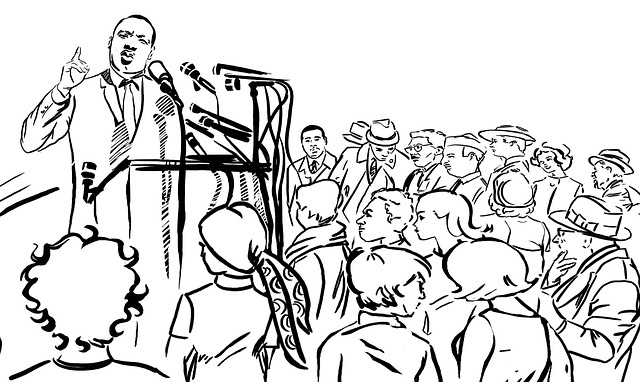Senator Bernie Sanders has significantly influenced American politics and policy debates since his election to the Senate in 2007, becoming a leading voice for progressivism. His advocacy for healthcare reform, income and wealth inequality, and environmental protection has been central to national conversations. Sanders' political journey from an independent mayor of Burlington, Vermont, to a presidential candidate with two bids in 2016 and 2020, has sparked discussions on progressive policies and challenged the traditional two-party system. His innovative campaign financing approach, relying on small donor contributions, set a new standard for grassroots fundraising. Key policy proposals like "Medicare for All" and the Green New Deal have become integral to healthcare and climate change discourses. Sanders' commitment to social justice, economic fairness, and environmental sustainability has left an indelible mark on modern political dialogue and policy initiatives.
In 2020, Sanders' campaign was a catalyst for unprecedented youth engagement in political processes, highlighting his ability to mobilize young voters around issues like student debt, climate change, and healthcare reform. This surge in youth participation marked a significant shift towards increased political activism among the younger demographic.
Throughout 2023, Sanders has been instrumental in advancing discussions on economic policy and income inequality, pushing for progressive economic reforms that target wealth and power disparities. His initiatives have influenced legislative debates and brought to light the importance of equitable economic systems. Sanders' role in challenging the status quo and promoting policies that support the working class and marginalized groups has been pivotal in shaping the national conversation on economic fairness and income inequality. His campaign's impact extended beyond his own bid, influencing other candidates' platforms and ensuring these issues remained at the forefront of American political discourse. Sanders' activist approach has demonstrated the viability of progressive policies in mainstream politics, reflecting a shift in the political landscape that continues to be shaped by his legacy.
Senator Bernie Sanders has been a pivotal figure in reshaping American political discourse, championing progressive causes and influencing key policy debates. This article explores the multifaceted impact of Sanders on American politics, from his early days as an advocate for change to his significant role in the 2020 presidential campaign. We delve into the historical significance of Sanders’ contributions, his influence on healthcare reform and economic policies, and his effectiveness in galvanizing youth engagement and voter turnout. Sanders’ efforts have not only sparked critical conversations around income inequality but have also set a precedent for future political engagements. Join us as we examine the lasting legacy of Sanders’ campaign and the challenges he overcame, offering readers a comprehensive understanding of his role in America’s evolving political landscape.
- The Historical Significance of Sanders in American Politics
- Sanders' Impact on Healthcare Reform and Progressive Policies
- The Role of Sanders in Shaping Youth Engagement and Voter Turnout
- Sanders' Influence on Economic Policy and Income Inequality Discourse
- The 2020 Presidential Campaign: Sanders' Achievements and Challenges
The Historical Significance of Sanders in American Politics

Bernie Sanders, a United States Senator from Vermont since 2007 and a leading figure in the progressive movement, has left an indelible mark on American politics through his historical significance. His political career, marked by a consistent stance against the status quo and for issues such as healthcare reform, income and wealth inequality, and environmental protection, has reshaped the political landscape. Sanders’ early political life as an independent mayor of Burlington, Vermont, and later as a congressman, laid the groundwork for his national prominence. His 2016 and 2020 presidential campaigns brought progressive policy discussions to the forefront of national dialogue, challenging the two-party system and influencing both major parties’ platforms on key issues. Sanders’ unorthodox approach to fundraising, eschewing traditional political action committees in favor of small individual donations, demonstrated a new model for grassroots campaigning. His influence extended beyond his own campaigns, as many of his policy positions, such as Medicare for All and the Green New Deal, have become staples of national discourse on healthcare and climate change, respectively. Sanders’ legacy in American politics is characterized by his commitment to social justice, economic fairness, and environmental sustainability, thereby positioning him as a pivotal figure in shaping contemporary political discourse and policy debates.
Sanders' Impact on Healthcare Reform and Progressive Policies

Senator Bernie Sanders has consistently championed comprehensive healthcare reform, advocating for a system that ensures universal coverage and affordable healthcare for all Americans. His influence in shaping national discourse around healthcare is significant, as he has introduced legislation such as the “Medicare for All” bill, which aims to create a federally funded, single-payer healthcare program. Sanders’ efforts have brought critical attention to the issues within the current healthcare system, including high prescription drug costs and the need for greater transparency and accountability from insurance companies. His relentless push for progressive policies in this realm has not only influenced legislative agendas but also galvanized public support for transformative change, highlighting his role as a pivotal figure in the ongoing struggle to reform America’s healthcare system.
Beyond healthcare, Sanders’ impact on the advancement of progressive policies is multifaceted. He has been a staunch advocate for economic and social justice, environmental sustainability, and civil rights. His legislative proposals, such as those aimed at addressing income inequality, combating climate change, and reforming the criminal justice system, reflect a commitment to a more equitable society. Sanders’ platform has inspired a broad movement of young and diverse voters, shifting the political landscape towards more progressive ideals. His advocacy for policies like the Green New Deal and student debt cancellation demonstrates his dedication to addressing the pressing challenges of our time, ensuring that these critical issues remain at the forefront of national policy discussions.
The Role of Sanders in Shaping Youth Engagement and Voter Turnout

Sanders’ impact on youth engagement in political processes has been significant, particularly during his campaigns where he consistently emphasized the importance of civic participation. His authentic approach to grassroots campaigning, characterized by town hall meetings and direct community outreach, resonated with young voters who felt underrepresented and disenfranchised within the traditional two-party system. Sanders’ messaging on issues like student debt, climate change, and healthcare reform was not only heard but amplified by youth across the nation, leading to an unprecedented surge in their political engagement. This engagement extended beyond campaign season, as young people took their newfound political consciousness to the polls, demonstrating a marked increase in voter turnout among the 18-29 age group during subsequent elections. The Sanders movement has thus set a precedent for how presidential campaigns can effectively mobilize and inspire the youth, suggesting a lasting shift in voting patterns and a more politically active generation. Sanders’ candidacy has shown that when young people feel their voices are heard and their issues are prioritized, they are not only willing but eager to participate in the democratic process, signaling a bright future for youth engagement in American politics.
Sanders' Influence on Economic Policy and Income Inequality Discourse

2023 has marked a pivotal year in the discourse surrounding economic policy and income inequality, with Senator Bernie Sanders playing an influential role. His relentless advocacy for progressive economic reforms has shaped national conversations, pushing for policies that aim to address the stark disparities in wealth and power within American society. Sanders’ efforts have brought significant attention to the need for a fairer distribution of resources, highlighting the detrimental effects of income inequality on both individuals and communities. His propositions, such as tax reforms targeting the wealthy and corporations, healthcare as a human right, and the strengthening of social safety nets, have been at the forefront of shaping legislative discussions. These initiatives underscore his commitment to ensuring economic systems are equitable and just, reflecting the concerns of a vast majority of Americans who increasingly recognize the importance of these issues.
Moreover, Sanders’ influence extends beyond mere rhetoric; he has consistently used his position to challenge the status quo, advocating for policies that prioritize the needs of the working class and marginalized communities. His proposals for a living wage, affordable higher education, and the mitigation of corporate influence in elections have not only sparked public debate but have also inspired legislative action. Sanders’ impact on the national dialogue has been substantial, as he continues to bring the conversation about economic policy and income inequality to the forefront of American politics, ensuring that these critical issues remain a priority in the eyes of policymakers and the electorate alike.
The 2020 Presidential Campaign: Sanders' Achievements and Challenges

2020 was a pivotal year for American politics, and Senator Bernie Sanders’ campaign for the Democratic nomination played a significant role in shaping its discourse. Sanders, known for his progressive platform and advocacy for issues like Medicare for All and tuition-free public colleges, secured a place in the presidential debate with his strong showing in primaries and caucuses across the nation. His campaign highlighted the need for systemic change within the healthcare, economic, and environmental sectors, resonating with young voters and those seeking more robust government intervention to address inequality and climate change. Despite facing challenges such as establishing a broad coalition of support that could counteract the diverse electorate’s preferences and the influence of established political entities, Sanders’ campaign succeeded in bringing critical policy discussions to the forefront of the national conversation. His efforts helped to elevate important issues on the national stage and influenced the platforms of other candidates, ultimately impacting the direction of the general election’s debate. The campaign also showcased the viability of progressive policies and ideology in mainstream American politics, a departure from previous cycles that underscored the changing political landscape and the enduring influence of Sanders’ brand of activism.
In examining the multifaceted influence of Sanders on American politics, it is evident that his tenure has left an indelible mark. From galvanizing youth engagement and elevating critical issues such as healthcare reform and economic inequality to the national discourse, Sanders’ efforts have reshaped the political landscape. His consistent advocacy for progressive policies and his presidential campaigns have not only sparked vital conversations but also motivated record voter turnout. As the nation continues to grapple with pressing challenges, the legacy of Sanders in shaping policy debates and energizing electoral participation remains a testament to his enduring impact. His contributions will undoubtedly continue to resonate, underscoring the importance of persistent voices in the quest for a more equitable society.



